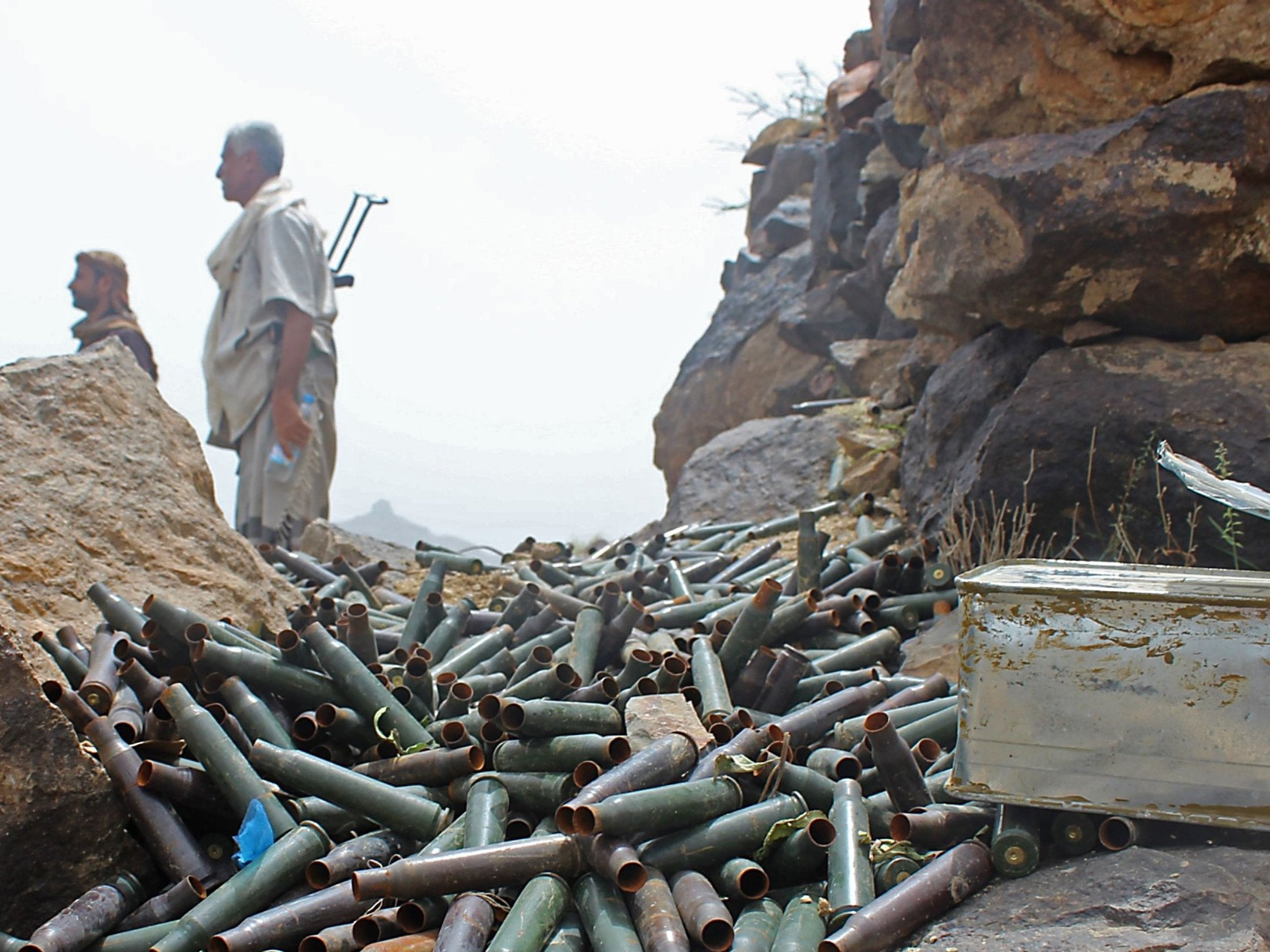After the latest report of violence and destruction in Yemen, Britain must stop selling arms to Saudi Arabia
British ministers are plainly embarrassed by the actions of Saudi Arabia – and their own failure to do anything to restrain its rulers from bombing Yemen into submission, if not back to the Stone Age

Why is Britain still selling arms to Saudi Arabia? The cruel absurdity of what is happening is highlighted in the latest news from Yemen. For arms that have been by supplied by one of its Western allies are now being used by Saudi Arabia to destroy aid projects funded by Britain. Oxfam reports that a cholera treatment centre and a water plant have been hit by air strikes from the Saudi-led coalition. The circle of destruction has itself come full circle.
It is a further grotesque aspect of a war that has been pitiless – and claimed huge loss of life. International agencies warn that the worst famine in a century will soon overwhelm the country, which was hardly prosperous before the bombs started to fall. The United Nations says that seven million Yemeni children are at risk of starvation: more than the entire population of Scotland. It is difficult to comprehend the scale of the humanitarian disaster unfolding on the Arabian peninsula – precisely to the south of one of the richest nations on earth, sitting on vast oil reserves and with a sovereign wealth fund valued at around $700bn. The obscenity is almost too big to contemplate.
Yet British ministers tell a concerned public that the arms were supplied to Saudi Arabia under the guidelines set down under the last Labour government, and are designed to prevent them being used for internal repression or international aggression. There seems to be rather a lot of that in evidence at the moment. Pressed by the SNP’s Westminster leader Ian Blackford at prime minister’s questions last week, Theresa May told him that the UK’s rules on arms sales are “among the strictest in the world”. Not strict enough, obviously.
The response to this situation should be to bring UK defence support to the Saudi regime to an end, at least until peace has been delivered. British ministers are plainly embarrassed both by the actions of Saudi Arabia and their own failure to do anything to restrain the country’s rulers from trying to bomb Yemen into submission, if not back to the Stone Age.
Even if it is unwilling to halt arms sales or the supply of spare parts, the government could at least apply some more intense diplomatic pressure than withholding visas from Saudi citizens suspected of involvement in the death of Jamal Khashoggi. It is sometimes said that Britain's historical links with the region have created a special relationship, giving the UK extra leverage with which to influence Crown Prince Mohammed bin Salman. If so, there appears to be scant evidence of this sway delivering any relief to the people of Yemen – or to the UK's own aid projects in that benighted land.
Whatever their intentions, the Saudis have an appalling record in the prosecution of this pitiless war. They have killed civilians, including children, blockaded the ports and thus restricted access to food and medicine, and destroyed much of what little national infrastructure Yemen possessed.
As if that were not enough, the failure of Saudi policy is made absolute by the fact that the Houthi rebels have not been crushed, and the security of Saudi Arabia is probably more precarious than it was before this ill-starred conflict began in 2015. And to this is now added the murder of Khashoggi.
The world’s press has, rightly, been relentlessly pursuing the grisly killing of the journalist, a crime that has rightly brought disgrace upon the reputation of the Saudi kingdom. Some of the stories that are swirling around the case – such as today’s allegation from the Turkish authorities that his body was disposed of in an acid bath – have seen no effective rebuttal. The story is not going to go away until the truth is out. Saudi Arabia’s rulers will then have to face the consequences.
Even the United States, for so long the kingdom's staunch ally – with well-publicised close links to the Bush political dynasty – has protested about that killing and the war in Yemen. The Americans have publicly called for the war to end, more than the British have done. However, like Britain, they are not yet prepared to halt arms sales either unilaterally or by an international agreement to de-escalate the conflict.
On the other hand, president Trump has re-imposed sanctions in Iran, which is in effect fighting a proxy war with Saudi Arabia in Yemen. This further complicates the situation and makes it less likely that Tehran will use its leverage on its Houthi allies to bring the war to an end. In that context, and the absence of any international initiatives, the only things that seem certain now are that the people of Yemen will suffer more, and that the famine will come.
Join our commenting forum
Join thought-provoking conversations, follow other Independent readers and see their replies
Comments
Bookmark popover
Removed from bookmarks